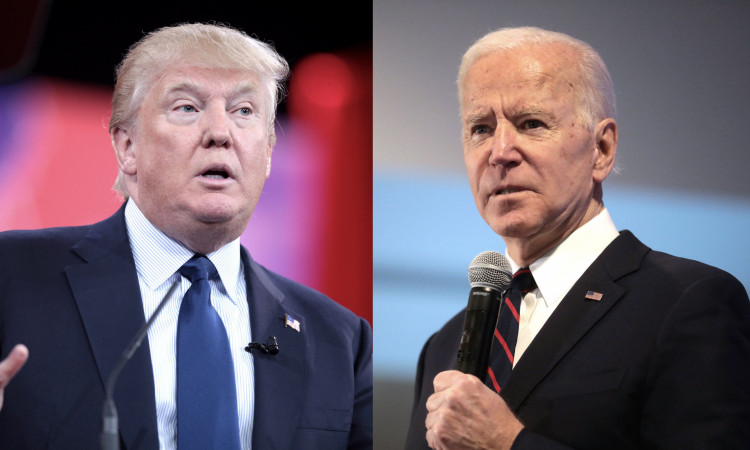Former President Donald Trump on Monday declared that all last-minute pardons issued by President Joe Biden using an autopen are "void, vacant, and of no further force or effect," and vowed to launch investigations into members of the House Jan. 6 select committee who received clemency.
"The 'Pardons' that Sleepy Joe Biden gave to the Unselect Committee of Political Thugs, and many others, are hereby declared VOID, VACANT, AND OF NO FURTHER FORCE OR EFFECT, because of the fact that they were done by Autopen," Trump posted on his Truth Social platform early Monday morning.
Trump further alleged that Biden was unaware of the pardons' issuance. "In other words, Joe Biden did not sign them but, more importantly, he did not know anything about them!" he wrote, while also questioning Biden's mental acuity at age 82.
The former president asserted that the pardons lacked proper authorization, stating, "The necessary Pardoning Documents were not explained to, or approved by, Biden. He knew nothing about them, and the people that did may have committed a crime."
Biden, in one of his final acts as president, issued preemptive pardons to nine members of the Jan. 6 House select committee, including its leaders Rep. Bennie Thompson (D., Miss.) and former Rep. Liz Cheney (R., Wyo.). The list of pardoned individuals also included former Joint Chiefs of Staff Chairman General Mark Milley and former chief medical advisor Dr. Anthony Fauci.
Trump warned that the committee members would be "subject to investigation at the highest level." He added, "Those on the Unselect Committee, who destroyed and deleted ALL evidence obtained during their two year Witch Hunt of me, and many other innocent people, should fully understand that they are subject to investigation at the highest level."
Biden's pardons, issued on the last day of his presidency, drew sharp criticism from Trump, who characterized them as protecting figures who, in his words, were guilty of "MAJOR CRIMES."
Legal scholars point out that the U.S. Constitution grants presidents broad executive clemency powers, with no provision allowing a successor to revoke pardons issued by a previous administration. Trump did not specify any legal mechanism by which he intends to invalidate Biden's pardons, nor is there precedent for nullifying pardons based on the use of an autopen.
Biden defended his decision to pardon the Jan. 6 committee members, as well as Milley and Fauci, stating at the time that the move was to protect public servants who had faced political retaliation for investigating Trump's conduct during and after the Capitol attack.
Former General Milley, who has called Trump a "wannabe dictator," had publicly testified before the committee regarding the events of January 6. Fauci, who retired in 2022, faced criticism from Trump and Republicans over his handling of the COVID-19 pandemic, particularly over questions concerning gain-of-function research.
Trump's comments come amid broader Republican scrutiny of Biden's use of autopen. Missouri Attorney General Andrew Bailey recently suggested that dozens of executive orders bearing autopen signatures under Biden's name may be unconstitutional. "If true, these executive orders, pardons, and all other actions are unconstitutional and legally void," Bailey said, calling for a Department of Justice investigation into whether Biden's cognitive state enabled staff to bypass his approval.
The Biden administration has not commented on Trump's latest statements. Biden's use of the autopen, a mechanical device authorized for presidential signatures since at least the George W. Bush administration, has been standard practice for expediting official documents.
During his own presidency, Trump issued more than 1,500 pardons and commutations, including clemency for numerous individuals charged in the Capitol riot, as well as high-profile members of groups like the Proud Boys and Oath Keepers convicted of seditious conspiracy. Biden, by contrast, issued nearly 2,500 pardons and commutations, including clemency for over 2,000 individuals convicted of nonviolent drug offenses.






